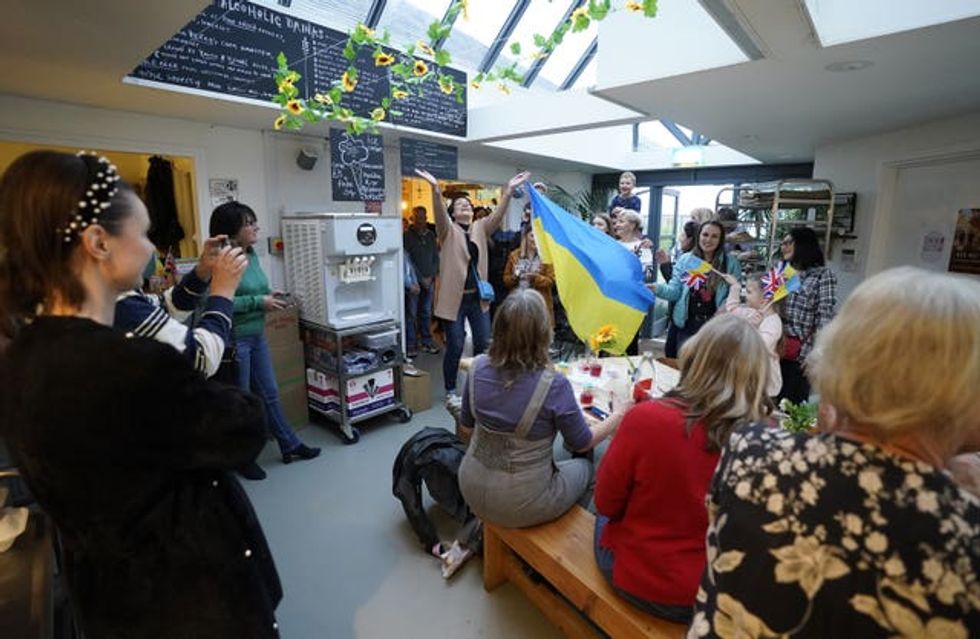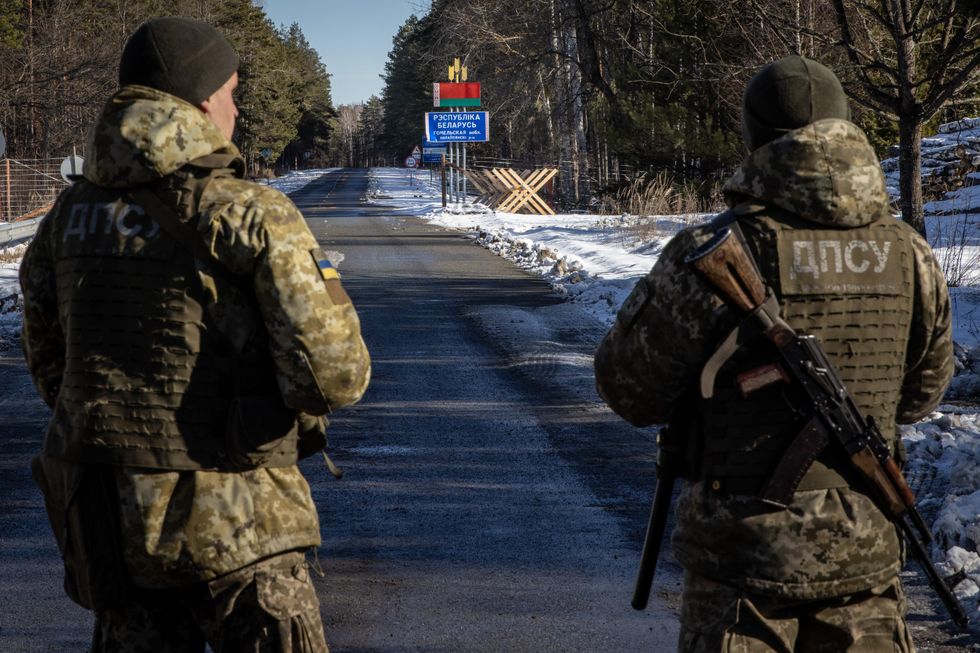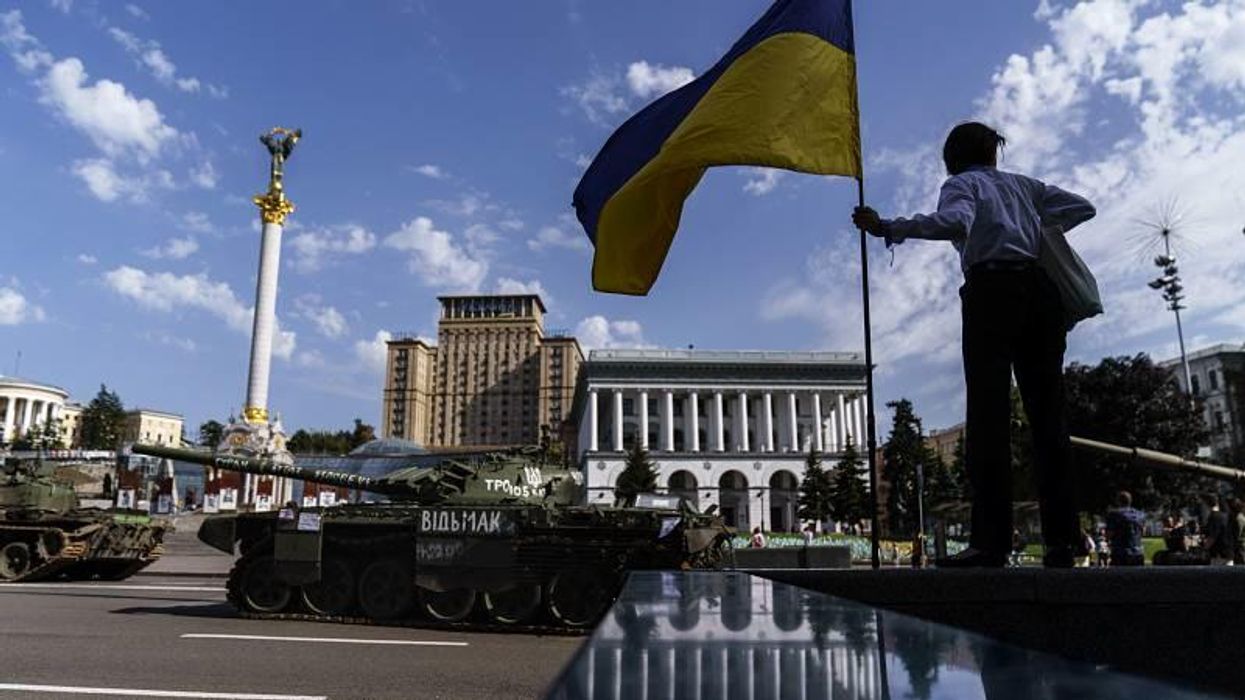It has been six months since Russia invaded Ukraine.
In that time, Russian leader Vladimir Putin has taken over about 20 per cent of the country. The U.N. High Commissioner for human rights has reported that 5,587 civilians have been killed and 7,890 wounded — and acknowledged that these figures are most likely underestimates.
Amid the pain has been a fast-evolving international response. The UK, the US and countries in the EU have taken measures to limit Putin's advance and support those fleeing from the war-torn country, with mixed successes.
Sign up to our free Indy100 weekly newsletter
With that in mind, here's an evaluation of what the UK has done to support Ukrainians so far:
Sanctions

As of July, Britain said it had so far sanctioned more than 1,100 individuals and more than 100 entities in Russia, including targeting high-profile businessmen and companies to prominent politicians and oligarchs like Roman Abramovich.
Meanwhile, Ofcom revoked Russia Today’s (RT) broadcasting licence on 18 March 2022 and the UK has also targeted Russia's transport, luxury and other sectors.
Imports are now subject to additional tariffs and some are banned altogether.
Perhaps in retaliation, Russia has also sanctioned a number of British figures.
Refugees

As of July, the government said that more than 100,000 people from Ukraine have arrived in the UK under the Ukraine Family Scheme and Homes for Ukraine Scheme - which was launched in March.
The government is providing £350 per person per month under the latter scheme to help households support people fleeing from the country by providing rooms in their homes for months at a time.
But six months after the Russian invasion, the government is asking existing hosts to allow Ukrainians to stay for longer than the minimum period of half a year, while also appealing for new sponsors.
And Lord Harrington, who is in charge of the scheme, has recently said payments to people should be doubled due to the cost of living crisis deterring people from applying to the scheme.
A quarter of sponsors of Ukrainians as part of the Homes for Ukraine scheme do not want to continue the arrangement beyond six months, the Office for National Statistics (ONS) has found.
And the ONS research also found that 18 per cent of those signed up for the scheme were still waiting for guests to move in.
Meanwhile, an investigation by the Guardian in June found that the UK has taken in fewer Ukrainian refugees per capita than all but one of 28 European countries.
Weapons and aid

The UK has sent aid and finance to boost Ukraine's defence capabilities, including air defence systems, uncrewed aerial vehicles, new electronic warfare equipment and thousands of pieces of equipment for Ukrainian soldiers.
It has committed £2.3 billion in military assistance to Ukraine thus far, according to a House of Commons report published this month. It has committed a total of £3.8 billion to Ukraine since February 2022, combined with humanitarian and economic assistance, it added.
In June, Johnson offered to launch an operation to train up to 10,000 Ukrainian soldiers every 120 days.
The UK has provided defensive lethal weaponry, including over 6,900 anti-tank missiles, five air defence systems, 120 armoured fighting vehicles, 1,360 anti-structure munitions, 4.5 tonnes of plastic explosives and 400,000 rounds of small arms ammunition.
The Independent has a proud history of campaigning for the rights of the most vulnerable, and we first ran our Refugees Welcome campaign during the war in Syria in 2015. Now, as we renew our campaign and launch this petition in the wake of the unfolding Ukrainian crisis, we are calling on the government to go further and faster to ensure help is delivered.
- To find out more about our Refugees Welcome campaign, click here.
- To sign the petition click here.
- If you would like to donate then please click here for our GoFundMe page.
Have your say in our news democracy. Click the upvote icon at the top of the page to help raise this article through the indy100 rankings.














